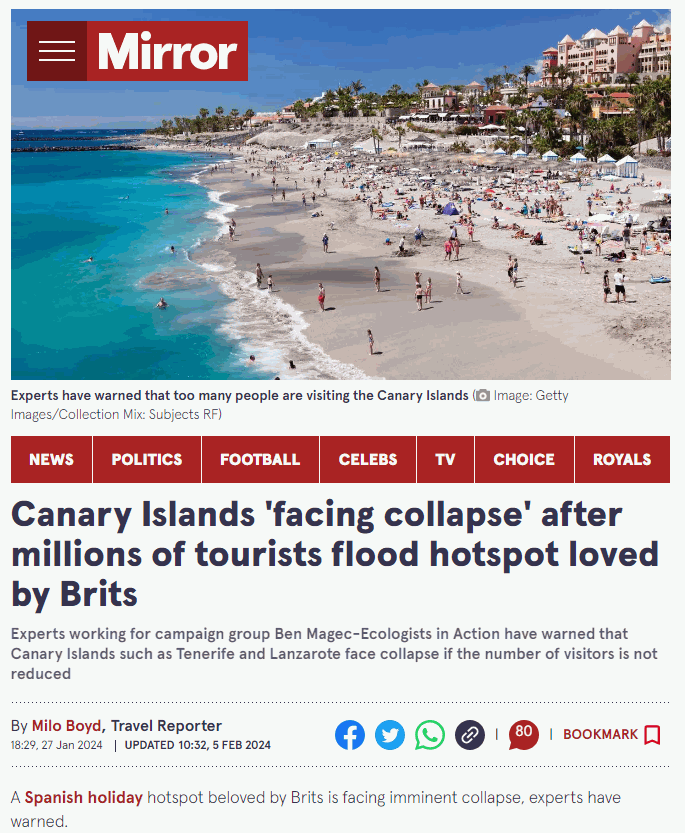The Canary Islands government slaps down Spurious claims about the islands being on the verge of collapse from tourism growth.
Debunking Myths of Collapse and Cultivating Sustainable Travel.
In a resolute response to sensationalist claims circulating in the British press, the Canary Islands have vehemently denied assertions of an impending ecological collapse spurred by an influx of tourists. The target of scrutiny was a recent article published by the Daily Mirror, which purported that the archipelago was teetering on the brink of environmental catastrophe due to excessive visitor numbers.
The contentious article, featured in the pages of the British tabloid, sparked a swift and robust rebuke from the Canary Islands government, refuting the notion of an ecological crisis precipitated by tourism. The Mirror's narrative, alleging a record-breaking surge in tourist arrivals totaling 48 million in 2023, with a significant portion hailing from the United Kingdom, was promptly dismantled by authorities.

While the Mirror's account found resonance with concerns voiced by environmental group Ben Magec-Ecologistas en Acción, citing the Canary Islands' purported state of overexploitation, the government moved swiftly to counter the narrative. Disputing the figures presented, officials clarified that the reported influx encompassed not only tourists but also encompassed inter-island travel and return journeys, skewing the perception of actual tourist footfall.
Turismo de Canarias, the island's tourism authority, underscored the critical distinction between total passenger traffic and genuine tourist visits, emphasizing that the latter constituted a significantly lower figure. Contrary to the alarmist rhetoric, official statistics revealed a more tempered reality, with approximately 14.6 million bona fide holidaymakers visiting the archipelago between January and November 2023, a number expected to rise to approximately 16.2 million with the inclusion of December's data.
While acknowledging the substantial volume of tourists, authorities stressed that such numbers remained well within the realm of manageable capacity, debunking claims of overburdened infrastructure or impending collapse. Highlighting the consistency of visitor numbers over recent years, with an average influx ranging from 16 million to 15.1 million between 2017 and 2020, Turismo de Canarias underscored the stability of the islands' tourism sector.
Furthermore, unlike seasonal tourist destinations subject to dramatic fluctuations, the Canary Islands maintain a steady stream of visitors throughout the year, alleviating pressure and fostering a more sustainable tourism model. Consequently, assertions of an ecological crisis induced by tourism were swiftly debunked, reaffirming the resilience of the Canary Islands' natural ecosystems amidst sustained visitor interest.

